Thursday morning my middle son, Will, headed off to a new adventure: a culinary program at a school about four hours away. It was a somewhat last-minute decision, and his departure was delayed a few days in a last-minute flurry of fussing with FAFSA, conversations with his advisor, and emails to professors. Finally, everything came together, and around 10 AM - car packed, hugs given - Will pulled out of the driveway.
Friends, it was about time.
Owen, my newly-minted college freshman, had come home for his winter break on December 13, and Will wasn’t out the door until January 17. That means that, for thirty-four days, our household was in that uniquely one-foot-in, one-foot-out state of limbo that the almost-but-not-quite launched inhabit.
If you’re a parent of young adults, you probably understand this limbo. Your kids may be gone, as in spending most of their time away from home, but they aren’t really gone. And when they’re here, they likewise aren’t really here. Whether for a weekend or a year, there’s an understood sense that your home is a temporary stopping place, a safe, soft place to land while they work out their adult decisions.
During that time, they get to enjoy the niceties of life they can’t yet afford for themselves, while we get to enjoy their presence and perhaps even momentarily pretend that they are once again the small children whose worlds we shaped utterly and possessed so completely.
But while it can be lovely for a while, in my experience the fun ultimately runs its course. No matter how joyful and pleasant (and all my kids are delightful humans, so there was plenty joy and hilarity) there’s also a sense, when our older kids use our homes as a temporary stopping place, that things aren’t quite right; that there is something else they need to be doing, somewhere else they need to be, and that you really need them to be in that other place, doing that other thing.
So when they were finally all gone, I let out a long, heavy exhale - and then realized I’d been holding my breath the whole time.
I’ve often thought of parenting as being made up of three major stages of labor. When they’re little, raising kids is physically taxing. From holding and soothing them to changing diapers and steering them out of harm’s way, a child’s survival is dependent on our constant, continual, bodily presence and effort. This work is exhausting and all-encompassing, but can also be relatively simple to delegate or divvy: after all, typically only one person can hold a baby at a time.
At some point, this shifts and mental labor takes a larger share of the load: school calendars, practice and rehearsal schedules, doctor’s appointments, meal-planning; the mountain of data we seemingly must synthesize in order to raise our kids continues to grow and our role mostly becomes keeping it all sorted. (This is when, I think, marital relationships and mothers’ mental health begin to crack under the pressure; because in our modern world, it’s a lot.)
But at some point - for most of us, anyway - much of the physical and mental burden falls away. First, we stop being responsible for our children’s toileting and feeding, then - slowly, gradually, sometimes painfully so - we also stop being responsible for their medical care, education, and calendar management.
From that point on, friends, it’s nearly all emotional labor.
And emotional labor is pretty much impossible to divvy up. My kids’ dad cares deeply about our children’s wellbeing - but that doesn’t mean I’m off the hook and can stop caring because he’s already doing that particular job, does it? I can hire a professional to help us make sense of, say, the college-application or career-planning process, but they can’t absorb my share of elation or disappointment or hope or worry.
And when your adult child is struggling, there’s no “Fair Play” solution to fretting.
In my book The Last Parenting Book You’ll Ever Read: How We Let Our Kids Go And Embrace What’s Next (coming May 2025) I wrote a lot about that emotional work, in passages like this one:
It took me some time to recognize that this process of resetting my boundaries, restraining from jumping in, and reinforcing my sense of self-worth is a “me” problem, not a “them” problem. By establishing their independence and breaking away, my kids are just doing their jobs. My job is just as necessary, and just as developmentally appropriate: I’m working to figure out who I am, what they really need from me, and perhaps more important, what I need from myself.
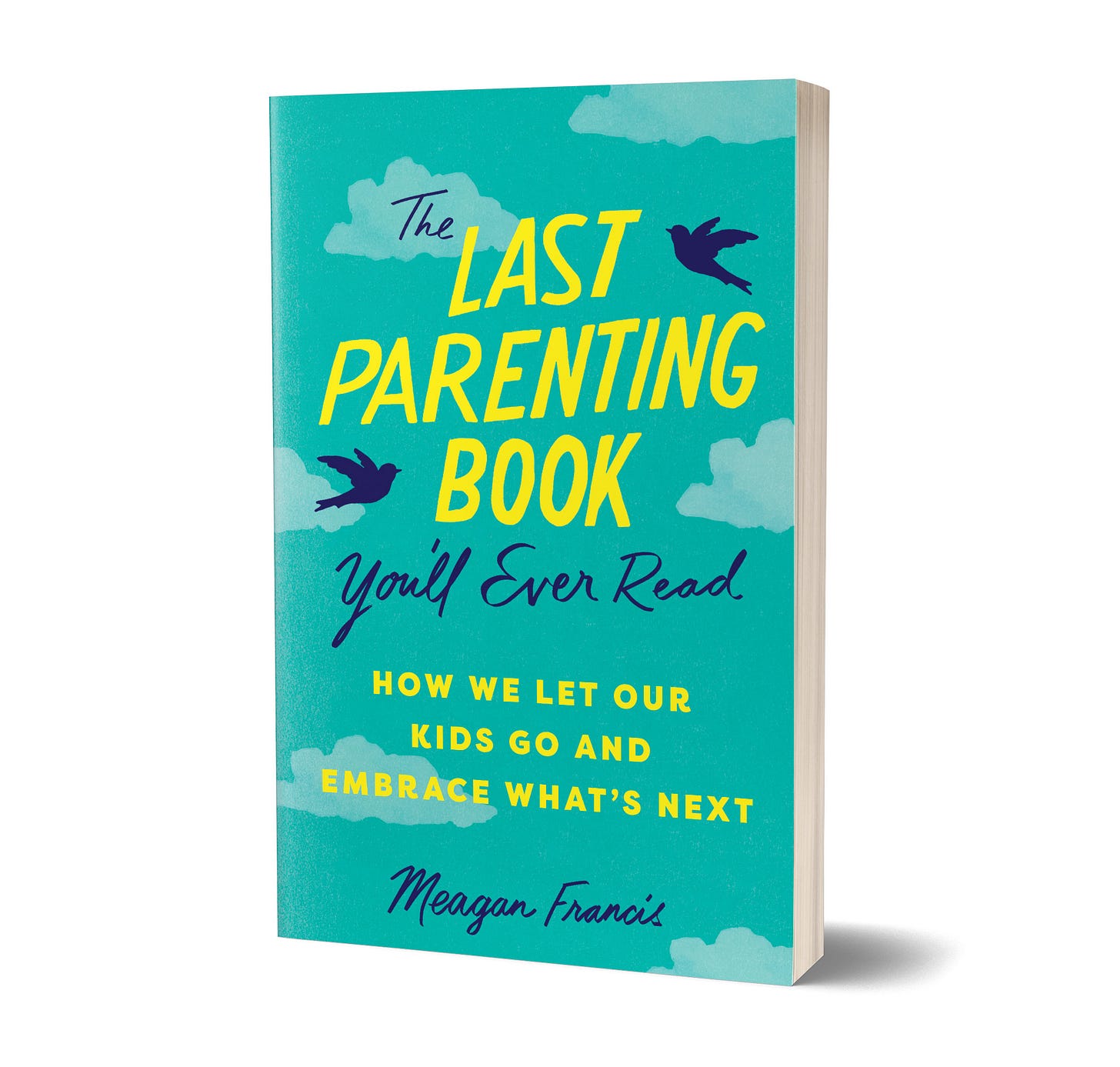
Once upon a time, I somehow believed that when my children turned eighteen, the work would pretty much be done. I’d live my life, they’d live theirs, and we’d get together on the regular for rousing board games and fun family dinners.
What I didn’t realize, then, is that the work never ends, exactly - its nature simply shifts. It’s something more subtle now, more restrained. Fewer visible acts of caring; more time spent talking them - or myself - down, sharing a piece of information at just the right time, asking the right questions and listening to the answers, holding back from saying too much.
I also know that this is my adult kids’ time to learn to cope with their monsters without me - and for me to learn how to step back and let them, without the ensuing worry then turning into my own personal monster.
More than ten years ago, I wrote an essay making a case for parenting responsively, even in the middle of the night. Owen was then eight or nine and having a lot of 3 AM fears, and I wrote:
“I have the power to make him feel safe. Why wouldn't I use it?”
Why I believe in nighttime parenting
This essay was originally published at HuffPost, way back in 2014. I’m re-publishing it here, now that my kids are more than ten years older, as a reminder to myself of what matters.
I had no idea that a decade later I would still hold that power. Sometimes I’m surprised by the ways my support and reassurance can still help my young adult children feel safer in this world.
It makes sense, though: I have more life experience than they do; I know things they just don’t know yet - things that can help relieve unnecessary anxiety and lighten their load. More than once, after I’ve explained how something works, or why they don’t need to let an unknown stress them out, my adult kids have told me they felt better. Not the same as a midnight snuggle to stave off scary monsters, perhaps, but still meaningful, and it still makes me feel good to know that what I say can matter.
But I also know that I can no longer wield that power as absolutely as I once did. I’m not around them nearly as much now; not physically present for whatever shape their midnight fears now take. I also know that this is my adult kids’ time to learn to cope with their monsters without me…and for me to learn how to step back and let them, without the ensuing worry then turning into my own personal monster.
My oldest child, 27, left our home nine years ago, and I’m really just beginning to peel back the layers of my shifting relationship with him and his younger siblings. What I’ve learned, through some intensely difficult situations, is that I can’t afford to be consumed by my adult kids’ struggles and successes…but neither should I wash my hands of them.
A healthy distance, without detachment, is my parenting North Star in this strange season.
That distance won’t save me from heartbreak and worry, of course. Those are the prices we pay for loving our kids, both when they’re small and when they’re big. But being consumed by my kids’ problems won’t ultimately help, either.
So we do this dance alone, together: them learning what they’re capable of, and me, learning to live this new life without them as fully as I can - but ready for the midnight visit if it comes.
Related…
My book, The Last Parenting Book You’ll Ever Read: How We Let Our Kids Go And Embrace What’s Next, is available for pre-order now. Pre-orders, whether through Bookshop.org or Amazon, are hugely helpful in signaling to booksellers: “Hey, people want to read this book! You should stock it!”
I am so grateful for all the support so far. Thank you!
In case you missed it…
Earlier this week I hosted
on an episode of The Kettle podcast:Exiting Instagram and investing in the real world with Sarah Powers
More and more, people are talking about leaving social media for good. But how? It’s easy to feel trapped by these networks that have become so intertwined in every aspect of our lives, from shopping to socializing. In this episode of The Kettle, I catch up with my good friend and business partner
And last week I wrote a post about why hope is warranted, even if “things” don’t “get better.”
Coming up…
Next weekend I’ll be traveling to meet up with
! We try to get together a couple of times a year to discuss life, business, and all the rest, but it’s been way too long since our last meet-up. If you don’t hear from me next week, it’s because we’re having too much fun.And…I’m opening a second location of Bevy in February, this time much closer to home.
I can’t wait to tell you all about it soon.
In the meantime, the members-only chat is active and we’d love to have you join. We have some really fun stuff coming up starting in February, including a weekly Co-Create Circle, where you can work on a creative project of your choosing while hanging out with other members. Upgrade your subscription to join the conversation!


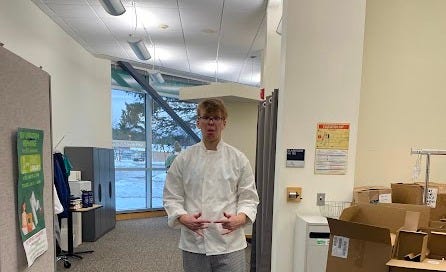



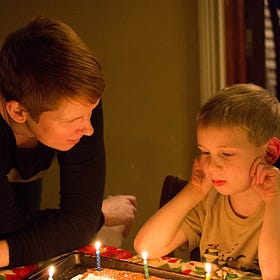
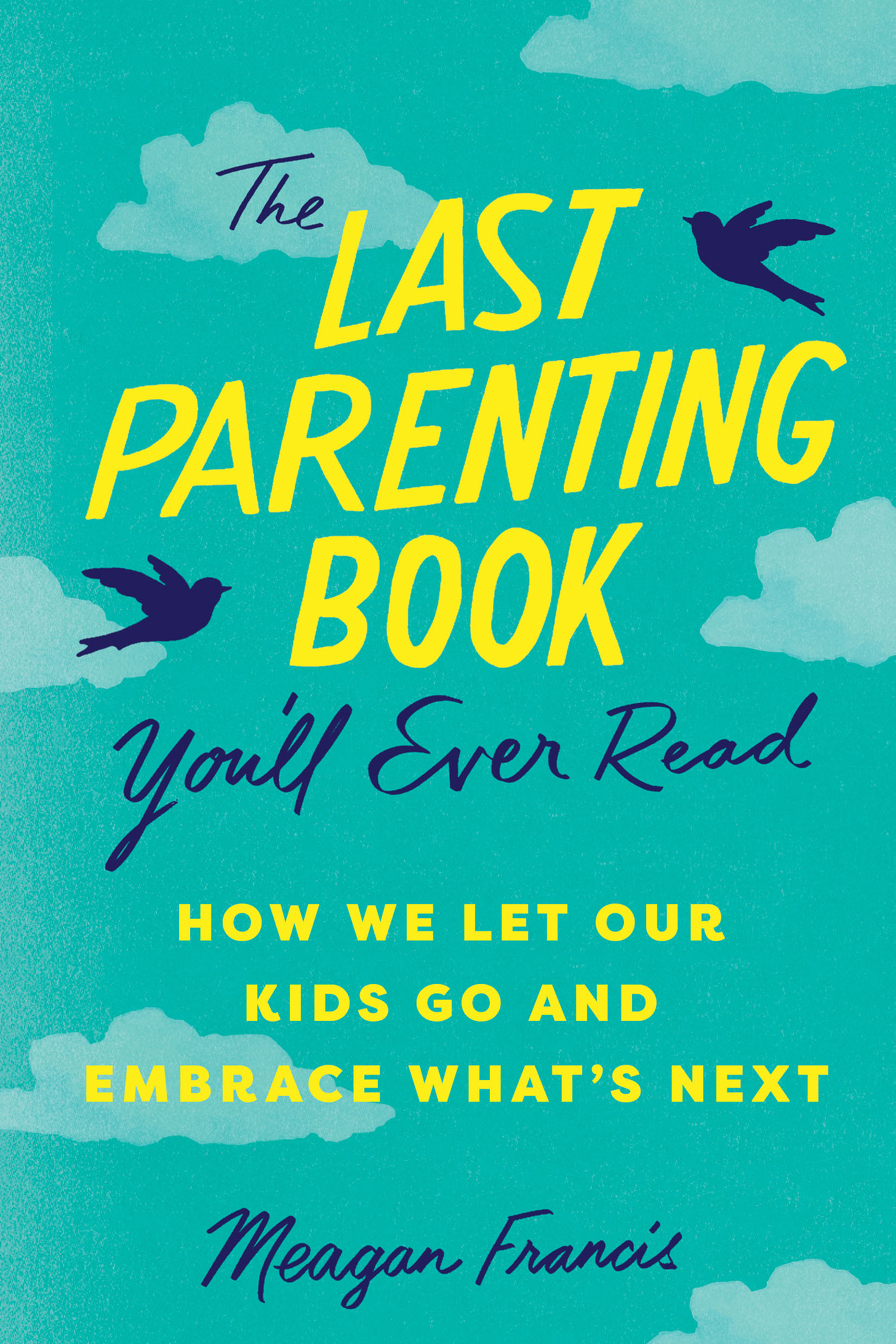
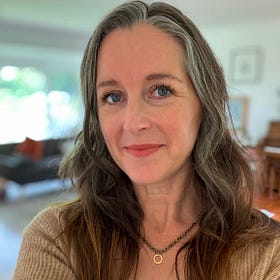

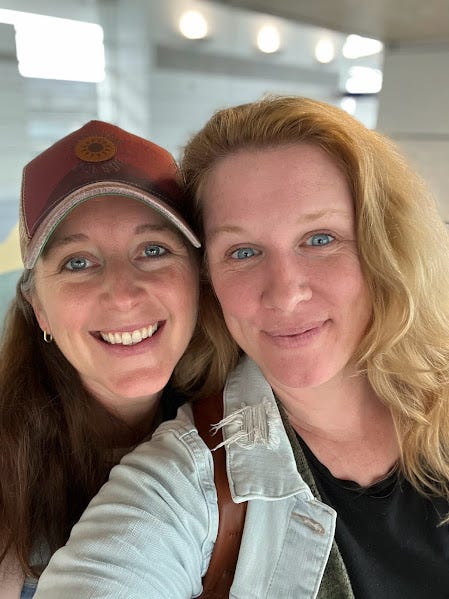


This is so pertinent for where I am right now. In my post last week I referred to it as acting as a "maternal angst sponge. " I absorb all that new semester/what am I doing for the summer stress as the kids are getting ready to head back to school without realizing it until my neck gets stiff, and I'm having trouble sleeping. Distance without detachment is exactly it. And as much as I'll miss them, when the final one goes back tomorrow I'll be glad for the clarity it brings for my own personal stuff. I love having them home. And I love it when we all get back to our own work and look forward to the next visit. Thanks for this.
We lived with my in laws for several months, and what I realized (my husband is the oldest of 10) was that I was never going to stop being tired as a mom. Not in a bad way, but witnessing my MIL’s fatigue from staying up later than she’d prefer talking to college kids home from the summer, and being unable to sleep bc of menopause and the way that she cared for but couldn’t control the new driver, the job woes etc… was good for me. It makes me a little less likely to want to rush through my current days.